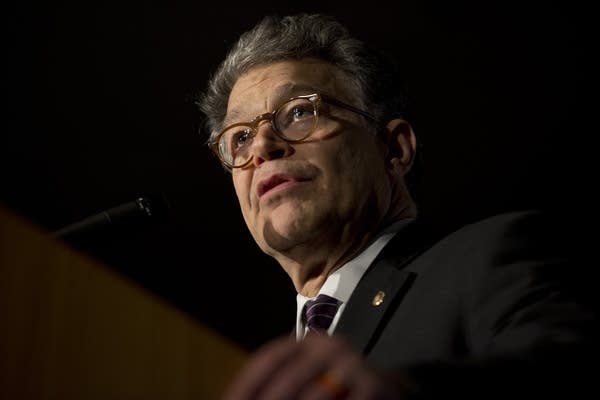'Fiscal cliff' vote splits Minnesota delegation
Go Deeper.
Create an account or log in to save stories.
Like this?
Thanks for liking this story! We have added it to a list of your favorite stories.

By Minnesota Public Radio staff and wire reports
ST. PAUL, Minn. -- Minnesota's congressional delegation largely voted along party lines for compromise legislation avoiding the "fiscal cliff" now headed for President Barack Obama's signature.
The Republican GOP-run House voted final approval for the measure by 257-167 late Tuesday. That came after the Democratic-led Senate used a wee-hours 89-8 roll call to assent to the bill, belying the partisan brinkmanship that colored much of the path to the final deal.
DFL Sens. Amy Klobuchar and Al Franken joined an overwhelming majority of their colleagues to approve the package by a 89-8 margin early New Year's Day.
Turn Up Your Support
MPR News helps you turn down the noise and build shared understanding. Turn up your support for this public resource and keep trusted journalism accessible to all.
In the House, DFL Reps. Tim Walz, Betty McCollum, Keith Ellison and GOP Rep. John Kline voted to support the Senate measure.
Voting "no" on the bill: GOP Reps. Erik Paulsen, Michele Bachmann, Chip Cravaack and DFL Rep. Collin Peterson.
Here's what some members of the Minnesota delegation said about their votes.

Sen. Klobuchar: "The last thing we should be doing this New Year's is sticking middle class families with a tax hike," Klobuchar said. "I fought for and wanted a larger, more comprehensive plan that balanced revenues and spending cuts. I will continue to push for a broader plan to reduce our debt and give businesses and families the certainty they need."

Sen. Franken: "I voted for this bill because it contains a number of very important provisions, including tax cuts for working and middle-income Minnesotans, an extension of unemployment insurance for so many Americans who are looking for work, and the production tax credits that mean so much to our state's renewable energy producers," Franken said.

Rep. Bachmann: "America is at a moment that requires big solutions to big problems. Instead, Washington politicians have engineered a last minute backroom deal that does not address America's jobs and debt crisis," Bachmann said in a statement on her website after the vote. "Rather than a deficit reduction plan, the Senate sent us a grow government plan."

Rep. Ellison: "I voted for an imperfect bill in order to prevent millions of working and middle class families from paying more in taxes while they scrape by with less, to aid those who continue to struggle to find work, and to assist millions of families who need help raising children and paying for college," Ellison said. "The top 2 percent can afford to contribute more.

Rep. McCollum: "I am voting to pass a bipartisan compromise that protects middle class taxpayers from a tax increase and at the same time keeps a promise to preserve Medicare, Medicaid, and Social Security," McCollum said, adding that is raises "$620 billion in revenues to allow continued investments in education, renewable energy, and job creation."

Rep. Walz: "While I'm disappointed that it isn't the larger, 'Go Big' type deal I have been advocating for, this bill is a good first step," Walz said. "This bill extends many vital tax incentives for businesses including the Wind Production Tax Credit, which will create jobs in southern Minnesota and continue to move our country towards energy independence."

Rep. Peterson: "You know, how we got from a point where we were trying to reduce the deficit to a bill that figured out how we can spend more money is beyond me, but that's what happened," Peterson said. And looking ahead to the the next Congress, Peterson's not optimistic. "It's going to be ugly. If you think this was a problem, wait until two months from now."

Rep. Kline: "It should have never come to this," Rep. Kline said after breaking ranks. "In the House, we have been reasonable and responsible by passing legislation in August to stop the largest tax increase in American history, and in December to replace the disastrous 'sequester' to defense with common-sense spending cuts and reforms which would reduce the deficit. Yet the President never called for the Senate to act on those bills."

Rep. Erik Paulsen: "At a time when Washington borrows 46-cents on every dollar it spends, we need a long term solution to cut spending and fundamentally reform our outdated tax code," Paulsen said. "It's unconscionable that the Senate chose to give hundreds of millions of dollars in tax breaks to industries like Hollywood and NASCAR, but chose not to stop the devastating new tax on the life-saving and life-improving medical device industry. The medical device tax, which took effect yesterday, will harm one of Minnesota's true success stories."




